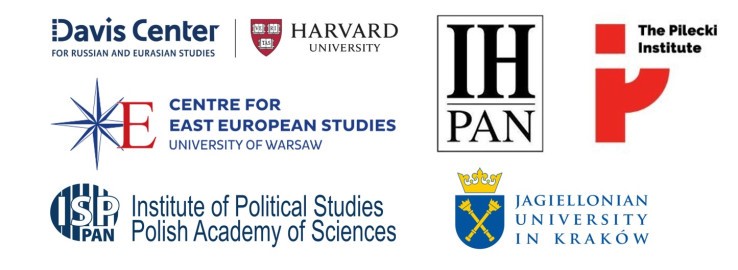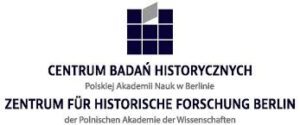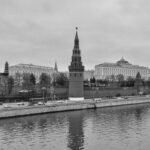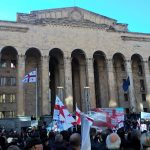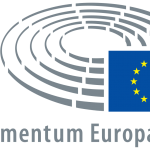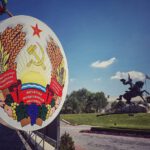’The future of Central and East European Studies in the light of Russia’s War of Aggression Against Ukraine’
17th-19th October 2024, Warsaw
Russia’s present aggression against Ukraine has changed the view of the Russian Federation that had previously dominated politics and scholarship. At the same time, it has brought attention to the role and importance of the countries located in Central and Eastern Europe, as well as changing perceptions of these both in international affairs and in political, scientific and legal discourses in the West. It has also had repercussions in the scientific field where cooperation between Western research institutions and Russian academic units has been suspended and access to Russian archives has radically narrowed. The war has moreover brought new challenges to how we approach international law, and to the role of Central and East European states in pursuing justice for war crimes, especially given current court proceedings regarding Russian atrocities and breaches of international law. As a result of this, dominant interpretations are being reevaluated and gaps in current approaches to understanding phenomena in Russia and its history have begun to be noticed. One matter of urgency in the current situation is to move away from a Russian-centric view of Central and Eastern Europe in favor of other perspectives, including the experiences of the countries located there. What is needed are studies of Central and Eastern Europe that bring to the fore the histories of its member states, treated as entities independent of the Russian center. The above-mentioned factors, however, are not universal: Different views on Russia are also present in the so-called global south, and the dynamics in play since February 2022, like any other, are subject to temporal fluctuations. The aim of this conference will be to review the current state of affairs in the field of research on Central and Eastern Europe and on Russia, to reflect on the past, and to develop new approaches that can help decentralize perspectives and look for alternatives to the previously developed assumptions and models used to study this part of Europe. A comparative and interdisciplinary approach is called for, bringing to bear political, historical, legal, cultural, and sociological perspectives in as broad an approach as possible. This task has become all the more urgent as the rhetoric of Russia’s aggressive foreign policy is being based upon gross manipulation of the history of East-Central Europe. Such manipulation is further obscuring the true historical impact of the Russian Federation and its legal predecessors on the region.
Issues to which we would like to attach particular importance include:
- The politics of memory in Russia and the countries of Central and Eastern Europe.
- The experience of World War II and communism in Central and Eastern Europe.
- Russian imperialism and its influence on the history of Central and Eastern Europe.
- Foreign policy of Central and East European countries towards Russia now and in history.
- The history and state of research on Central and Eastern Europe in the 20th and 21st centuries.
- The history and state of research on Russia in the 20th and 21st centuries.
- The current and historical political and social system of Russia – its characteristics and distinguishing features.
- Russian political traditions and their influence on the shape of the state.
- Legal classifications and settlements of Russian and Soviet actions against the countries of Central and Eastern Europe today and in history.
- Legal perspectives on the nature of the war, responses to Russian war crimes, and how to effectively prepare for the challenges of post-war justice.
- Perceptions of Eastern and Central Europe in Russian culture and vice versa.
We strongly recommend grouping submissions together in thematic panels of 3-4 papers and will give preference to such submissions, but individual paper proposals will be considered as well.
For instructions on preparing and submitting proposals please see:
https://instytutpileckiego.pl/en/badania/fall-conference/participation-guidelines


